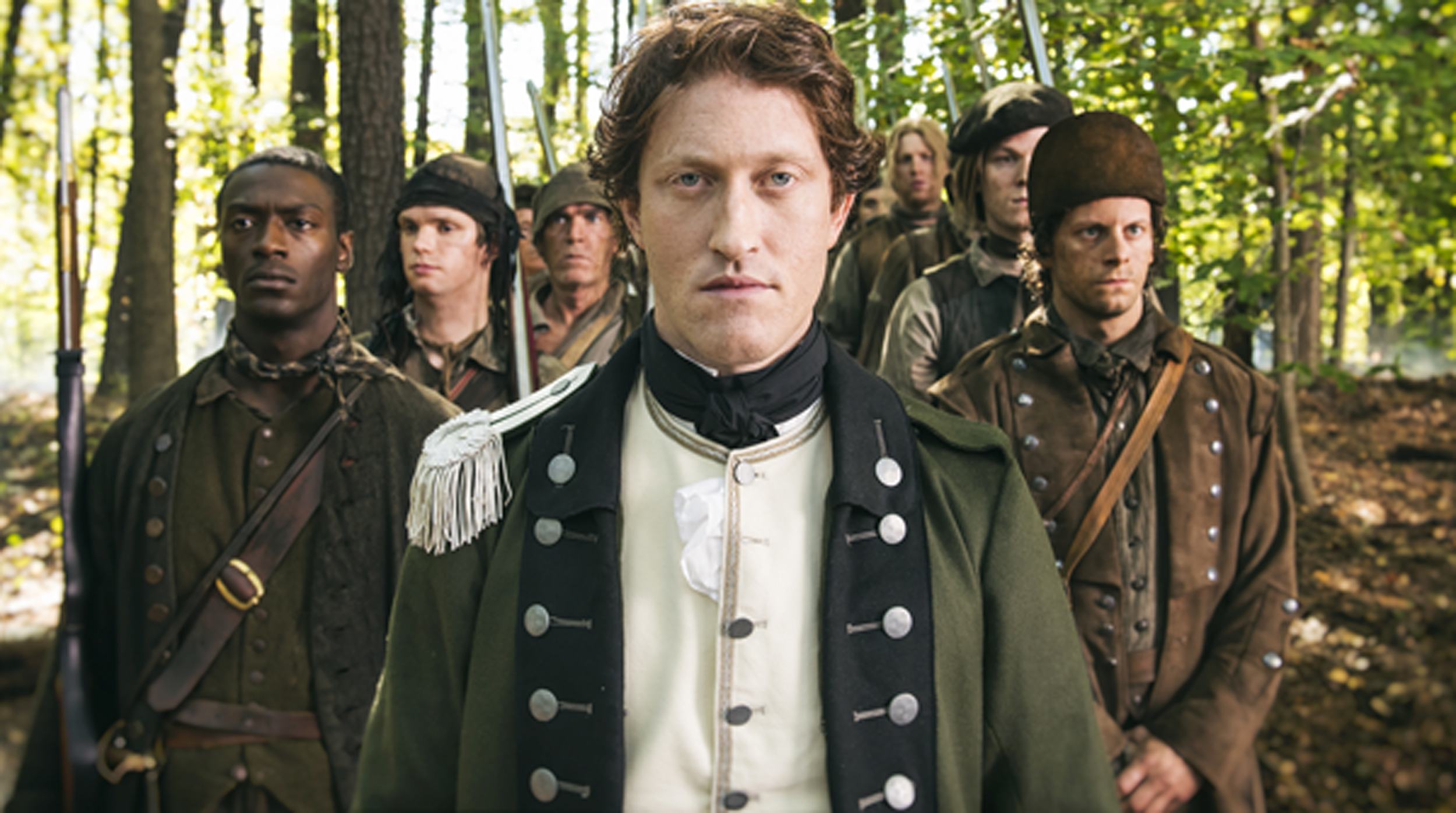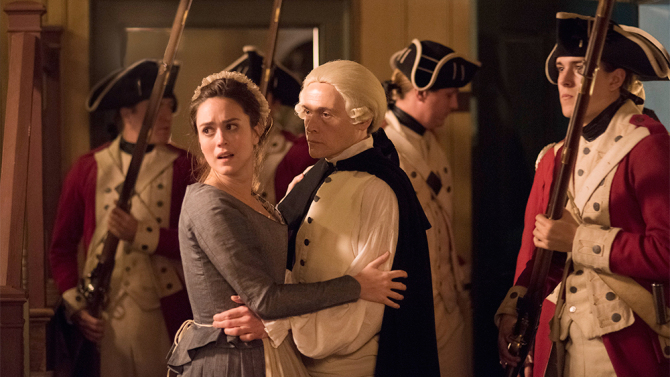‘Turn: Washington’s Spies’
Show Lures Viewers with Dramatic Historical Intrigue

If not before, then right around the time the proudly menacing and mercy-free Lieutenant Colonel John Simcoe (played by Samuel Roukin) is applying lacerations with his serrated long knife, and then literally rubbing “salt into the wounds” of captured rebel and smuggler Caleb Brewster, we realize that Turn: Washington’s Spies is more than just a Revolutionary War period piece. Rather, the somewhat teasingly melodramatized but often fascinating and binge-worthy series offers some living-room-sized revelations. For one, it disabuses us of our collective assumption that our war of independence was something cleaner or less complicated by turn-coating, spies, and dirty, bloody dealings on Colonial soil than it actually was. War is messy and hellish and rarely follows a clean narrative logic, and it was no different in what was then America’s longest war.
In the same interrogation scene, contained deep in the engaging two-hour episode opening the fourth and final season (which premiered on AMC last Saturday and wraps up in 10 episodes), we catch sight of the infamous and signature American “turncoat” Benedict Arnold (Owain Yeoman, blessed with a handsome oiliness), aptly described by Brewster (a bearded scruff played by Daniel Henshall) as “a pompous, two-faced piece of shite.” Make no mistake: There is history to be absorbed in the course of the show, with plenty of caveats and soapy fabrications involved for entertainment’s sake.
Developed and coproduced by Craig Silverstein, Turn is based on Alexander Rose’s historical book Washington’s Spies: The Story of America’s First Spy Ring, about the strategically important “Culper Spy Ring.” TV’s Turn, officially represented with the “N” craftily turned backward, also tears asunder some of the historical fact factor, to spice up the story for our consumption. Anna Strong (Heather Lind) is a, well, strong figure in the covert spy ring, but drawn into an illicit affair with subversive catalyst, farmer Abraham Woodhull (Jamie Bell), contrary to known accounts. Other historical gray areas sneak into the extended series, in a plot machine occasionally resorting to potboiler tactics.

To commence the current and fourth season, Arnold — who announces, “I have been appointed spyhunter general” — takes up the task of rounding up known and presumed spies and traitors to the Crown, in the then British-held stronghold of New York (including a wrongly-charged actress who has offended Arnold’s lovely and conniving wife, Peggy Shippen, played by Ksenia Solo). The pursuit, sometimes a witch hunt, leads us to a picturesque array of grubby, posh, and otherwise antiquated locations, and sets the late-18th-century N.Y.C. area with some impressive production values and costumes (although the bland modern-day movie score music works against any sense of verisimilitude).
There are moments in the flow of the protracted story when a reflection of the complex nature of war on American soil emerges, between citizens torn between two worlds — the imperialists and the future liberated “Americans.” In one instance, when Abe Woodhull’s merchant father, who deals with the redcoats, accuses his son of treating the Tories and Loyalists with unseemly brutality and having slaughtered them, his son retorts, “Slaughtered? These are not sheep. They’re soldiers. We’re in the war now. This is how it’s done.”
From the elegant, innuendo-laden and fanciful domain of banquets and balls — far from any hint of battle — to grimy camps and outposts, Turn lures us into its dramatic snare by means of personal/national historical intrigue, soap operatic gear-turning, and stealthy wars of will and cunning. Wily words and salted wounds are in that mix, as well.



